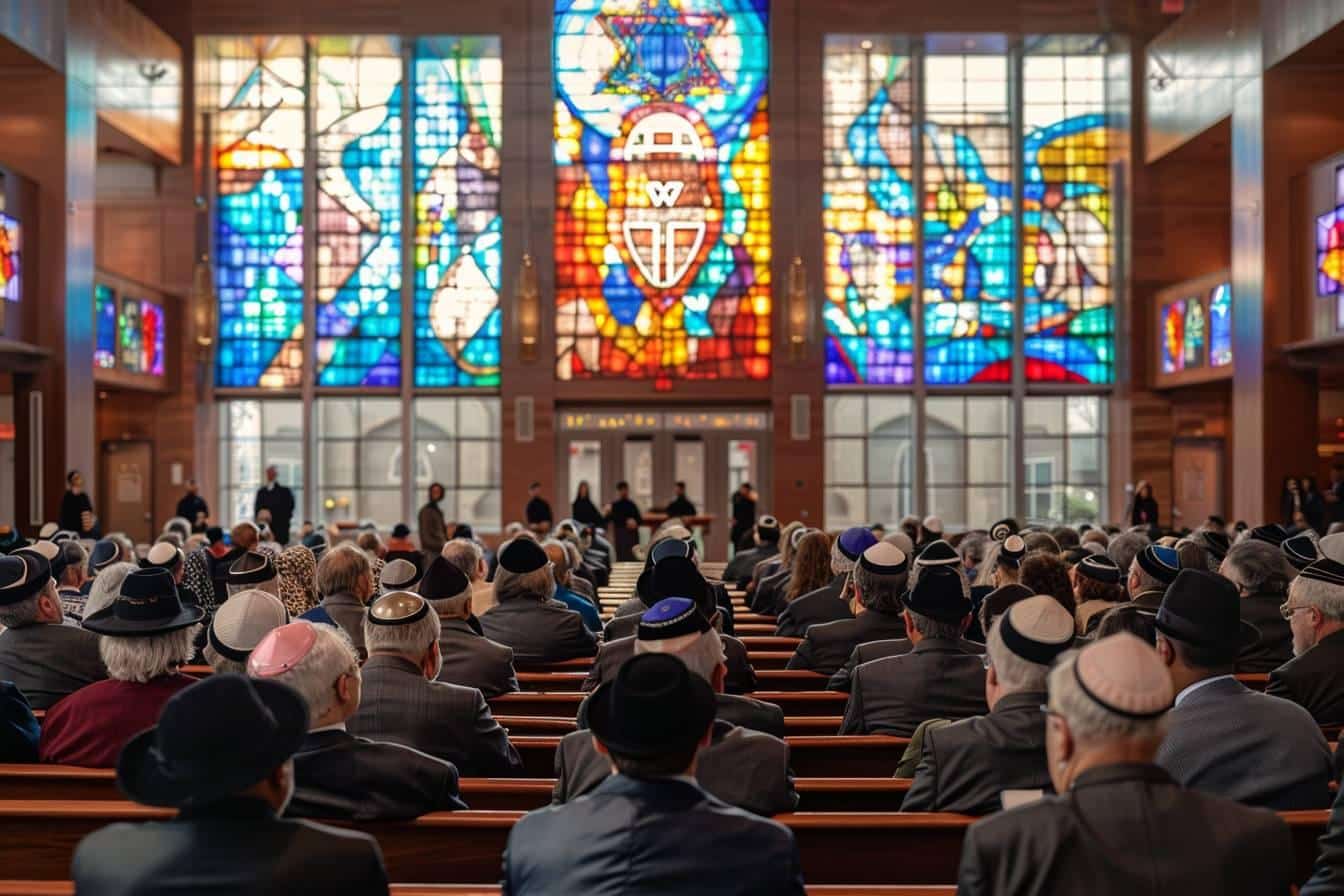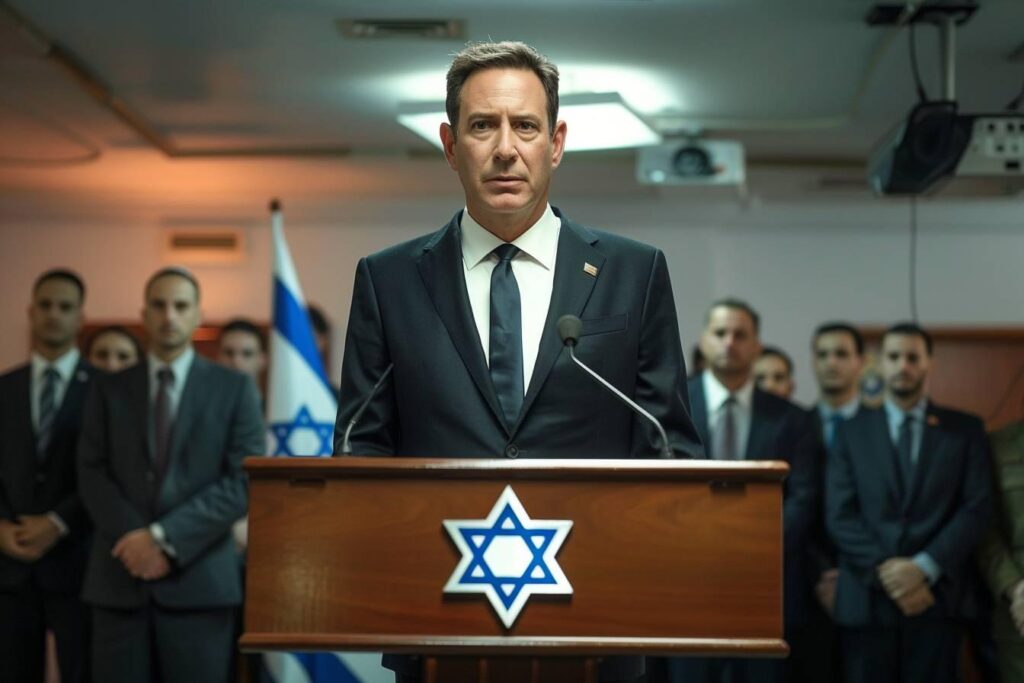Amid Curriculum Changes, Houston’s Jewish Community Stands for Inclusive Education

In the heart of Texas, where the landscape is as diverse as its population, a recent proposal by the Texas Education Agency (TEA) has sparked significant debate and concern. The proposed curriculum for grades K-5, which integrates Christian-based teachings into the educational fabric, has particularly resonated within Houston’s vibrant Jewish community. As this diverse city navigates through the complexities of educational reforms, the voices from its Jewish residents echo a call for inclusivity and respect for all religious beliefs in public schools.
The Proposal at Hand
The TEA’s new curriculum initiative includes an increase in funding per student for schools that choose to adopt this Christian-oriented educational framework. While participation is optional, the implications of such a curriculum are profound, especially for non-Christian students. For Houston’s Jewish community, this proposal is not just about curriculum changes; it’s about maintaining a space where all children can learn without feeling isolated or misrepresented.
Community Concerns
Erica Winsor, Public Affairs Officer at the Jewish Federation of Greater Houston, has been vocal about the potential repercussions of this curriculum on Jewish students. “Incorporating a tax-funded, religion-specific focus within public schools fundamentally challenges the principle of religious neutrality,” Winsor explains. She fears such a shift could alienate Jewish students and restrict their ability to practice their faith freely.
One contentious point in the curriculum is its portrayal of historical events, such as the story of Esther. The current wording suggests that Jews were treated differently “because they were different from those around them,” which subtly perpetuates a narrative of otherness. Winsor proposes an alternative phrasing: “Jews were living away from home,” which she believes would foster a more inclusive understanding among young learners.
The Debate Over Religion in Schools
The core issue extends beyond individual curriculum points to the broader question of religion’s role in public education. “Religion is an integral part of many families’ lives and deserves respect. However, teaching specific religious principles in public schools should be approached with caution,” Winsor argues. She stands firm in her belief that matters of religious belief should be addressed within families and religious communities rather than public classrooms.
Striking a Balance
Despite reservations, the proposed curriculum isn’t without merit. It includes educational material about the Holocaust—a crucial historical event that remains relevant in teaching about human rights and tolerance. This inclusion signals an attempt to provide comprehensive education about significant historical events; however, whether this balances out the overt religious tones of other curriculum parts remains a contentious issue.
Community Response and Actions
The Jewish Federation of Greater Houston is actively engaging with educational policymakers to advocate for an inclusive approach that honors all backgrounds. Through meetings, forums, and discussions, they aim to ensure that the voices of all community members are heard and considered.
Action Steps:
- Community Meetings: Organize gatherings where community members can express their concerns and propose solutions.
- Policymaker Engagement: Continue dialogue with TEA officials to discuss potential impacts on non-Christian students.
- Educational Workshops: Conduct workshops in schools to educate teachers and administrators about diverse religious traditions and cultures.
- Public Awareness: Increase awareness through media and public campaigns about the importance of religious neutrality in public education.
Looking Forward: A Call for Unity and Understanding
The journey towards an education system that respects and celebrates diversity is ongoing. As Houston’s Jewish community advocates for a balanced approach to education, their efforts highlight a broader challenge faced by many communities nationwide. It’s a reminder that in our differences lies our strength, and education should be a tool for unity rather than division.
Houston’s situation is a microcosm of a national debate—how to integrate personal beliefs with public education without alienating any group. As discussions unfold and policies are shaped, it will be crucial for communities to continue advocating for systems that respect and uplift every student’s heritage and beliefs.
In Conclusion
The resolve of Houston’s Jewish community serves as an inspiring example of proactive civic engagement. By voicing their concerns and proposing thoughtful alternatives, they champion not only the interests of Jewish students but all who benefit from an unbiased and inclusive educational environment. As we look towards fostering environments conducive to learning for all children, let us take cues from such dedicated advocacy efforts that remind us of our shared values: respect, inclusion, and education as a universal right.
The conversation surrounding these curriculum changes is far from over. It will require the continued commitment and collaboration of all stakeholders—parents, educators, policymakers—to cultivate educational spaces where every child can thrive irrespective of their religious background. In doing so, we uphold the foundational values that make our communities strong and our future brighter.



